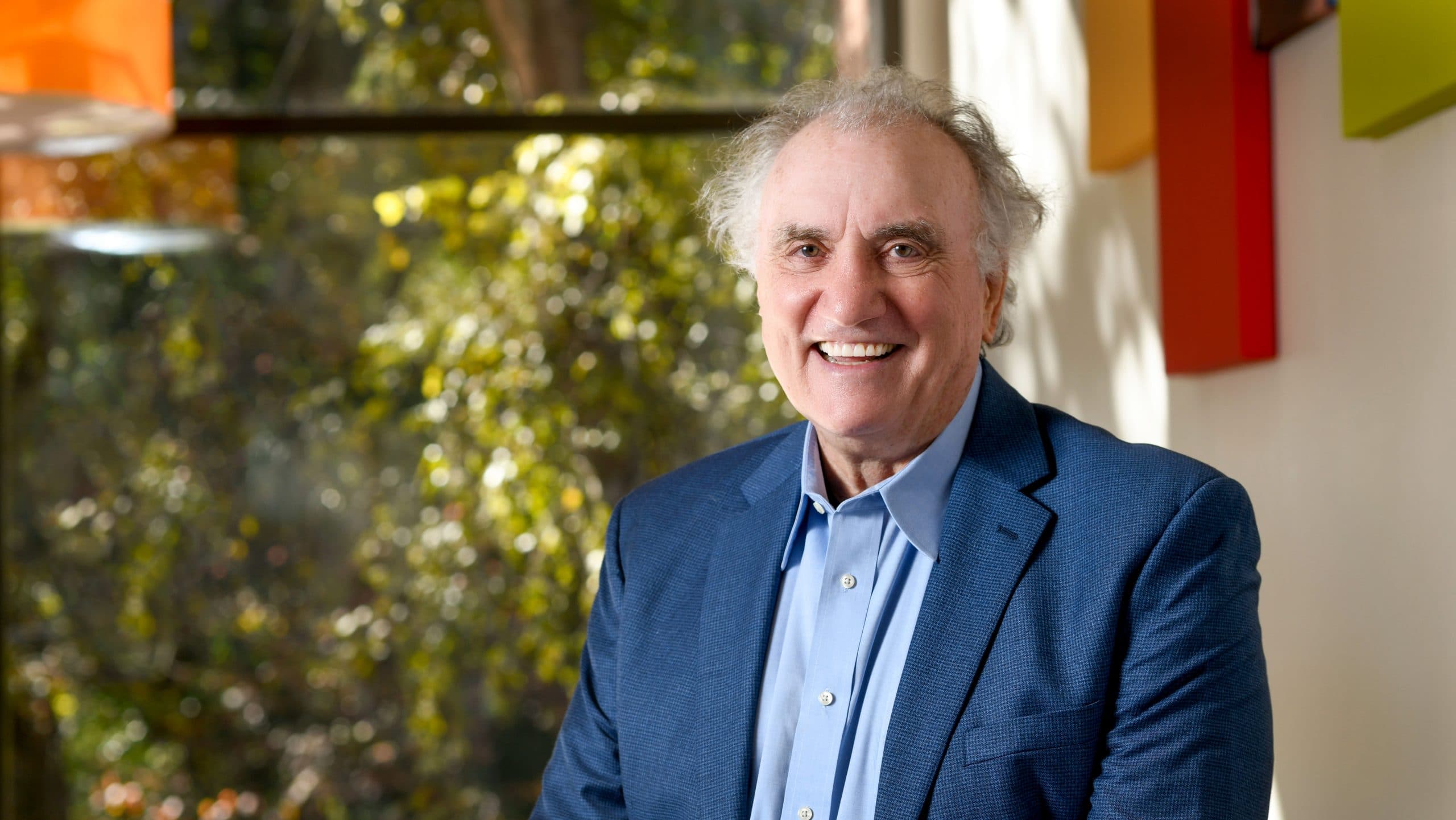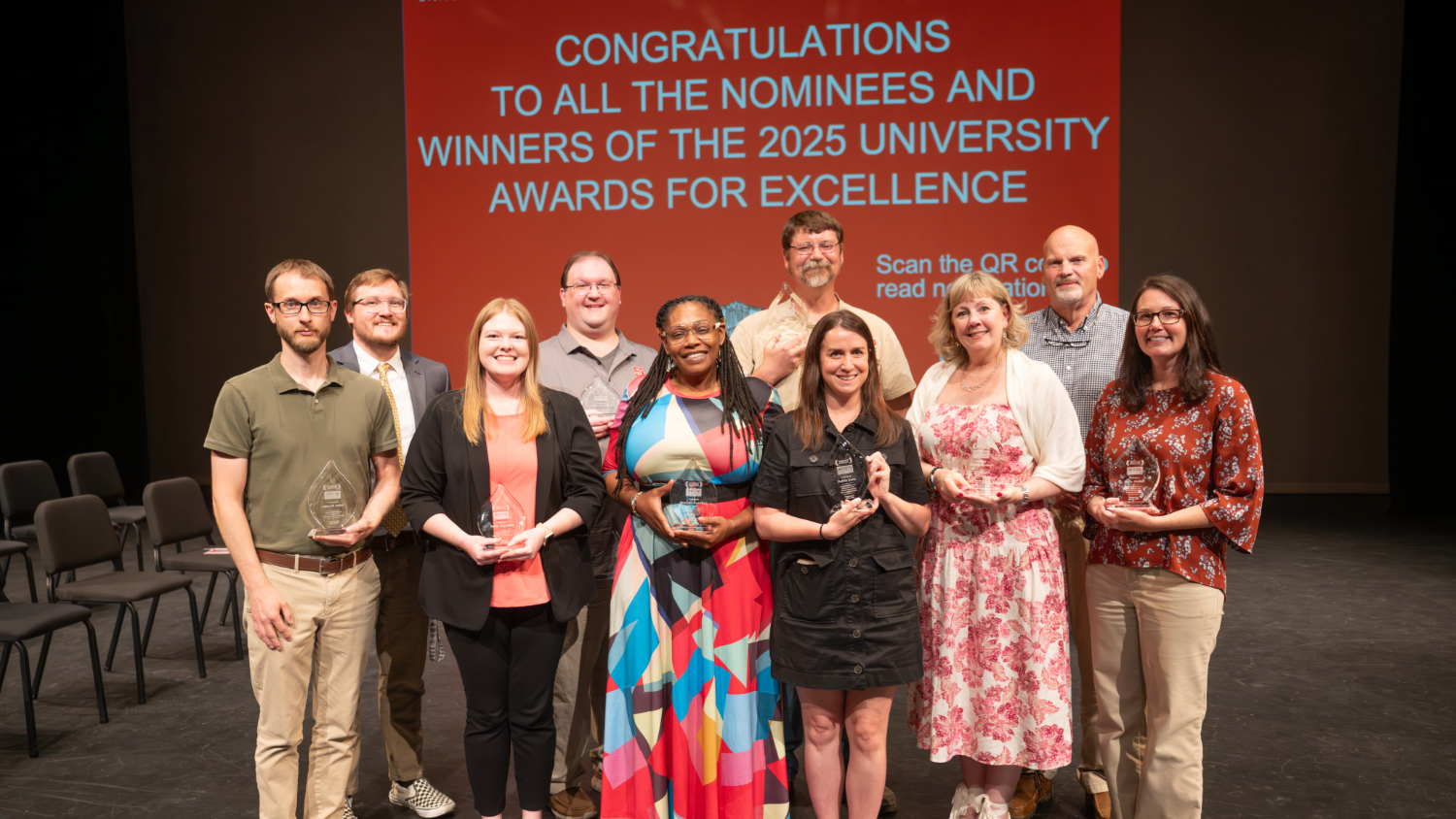Study of African American Language Wins Prestigious Linguistics Award
A research team led by Professor Walt Wolfram has been honored for its unprecedented research on how language changes during the first 20 years of life.

A book documenting the results of a groundbreaking 20-year study led by Walt Wolfram, William C. Friday Distinguished University Professor in the Department of English, has won the award for book of the year from the Linguistic Society of America.
The book, titled African American Language: Language Development from Infancy to Adulthood, received the LSA’s Leonard Bloomfield Book Award for 2022. The award committee cited the book for making “a remarkable and unique contribution to the study of African American language, contributing substantially to our understanding of how children construct identity, negotiate status and relationships, and transition across life stages by means of and as represented by their language.”
Study Took 20 Years To Complete
The pioneering study started tracking the linguistic development of 88 African American children when they were 6-12 months old. The researchers followed the children for the next 20 years, evaluating them every one to two years. Some of the children dropped out of the study over time, but at the end of the study period 67 were still enrolled, with no gaps in the data collected.
“In the field of linguistics research, no one has ever followed 67 speakers for 20 years,” says Wolfram. “That’s unprecedented.”
In addition, 75% of the original participants were characterized as high-risk children due to their socioeconomic status. Having such a high study retention rate among a high-risk population over such a long period of time is also unprecedented.
“When the study was completed, we had participants ranging from kids in elite universities to kids in prison,” Wolfram says.
The study’s main goal was to describe the patterns of language change over the first 20 years of an African American person’s life. Previous longitudinal studies of this type had followed one or two people at a time, but never a group this large.
“Usually the way it works is, a researcher will study cross-sections of people at different ages within a similar demographic. Then they’ll use their findings to extrapolate some conclusions about change over time. That’s called an apparent time study,” Wolfram explains.
“But we’re interested in individuals,” he says. “And the only way you can do that kind of research is to actually follow the individuals.”
Starting in 1990, the researchers worked with the UNC Frank Porter Graham Child Development Institute to gather their initial study participants from day-care programs in Durham, Chapel Hill and Carrboro.
The researchers used an index called the Dialect Density Measure (DDM) to quantify how much African American dialect a child used when speaking. They began measuring each child’s DDM starting at age 3, and they tracked how each speaker’s dialect usage changed over time.
“We found an ebb-and-flow pattern,” Wolfram says. “Kids typically entered school with a high DDM score, using lots of dialect. Over the next four years they tend to lose a lot of that. In grades six and eight they start gaining it again, because now they’re entering the peer-group years, when fitting in with your peers is so important. Then in grade 10 they go in one of two directions: if they’re going to a predominantly white school and plan to go to college, DDM declines; if not, it stays steady.”
The researchers also found that peers can influence dialect usage so that it either increases or decreases, and that peers have more influence on girls than on boys, regardless of direction.
The implication of these findings is that although dialect speakers can successfully learn to use so-called Standard English, once they associate with their peers they’ll talk the way their peers do.
Code-Switching and Academic Success
Another study finding examined the question of whether code-switching — the ability to switch at will between dialect and Standard English — correlated with a difference in academic performance. Based on the participants’ school records and their ability to code-switch in a study setting, the researchers found that children who can code-switch get higher scores on reading tests.
These and other findings from the study conducted by Wolfram’s team have added greatly to our understanding of how language use changes over a person’s lifetime.
“Now we have a really good idea of how individual variation takes place,” Wolfram says. That wouldn’t have been possible without following all the same people for the entire 20-year research period.
“The field of sociolinguistics is only about 50 years old anyhow, so the fact that we would spend 20 years doing this is unheard of,” he says. “Other studies use methodological shortcuts to try to draw similar conclusions; this one took the long route.”
Wolfram and the study’s co-authors — all of whom are former grad students of his at NC State — will receive their award during a special ceremony at the LSA’s 2022 annual meeting, to be held Saturday, Jan. 8, in Washington, D.C.


